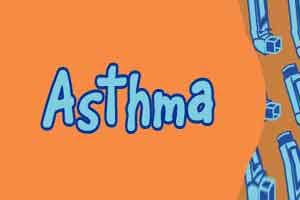- Home
- Editorial
- News
- Practice Guidelines
- Anesthesiology Guidelines
- Cancer Guidelines
- Cardiac Sciences Guidelines
- Critical Care Guidelines
- Dentistry Guidelines
- Dermatology Guidelines
- Diabetes and Endo Guidelines
- Diagnostics Guidelines
- ENT Guidelines
- Featured Practice Guidelines
- Gastroenterology Guidelines
- Geriatrics Guidelines
- Medicine Guidelines
- Nephrology Guidelines
- Neurosciences Guidelines
- Obs and Gynae Guidelines
- Ophthalmology Guidelines
- Orthopaedics Guidelines
- Paediatrics Guidelines
- Psychiatry Guidelines
- Pulmonology Guidelines
- Radiology Guidelines
- Surgery Guidelines
- Urology Guidelines
New gene therapy could turn off asthma

Melbourne: Scientists have discovered a DNA switch which can turn off our reaction to allergies, an advance that may lead to gene therapies providing life-long protection from diseases like asthma with a single treatment.
Researchers from The University of Queensland (UQ) in Australia were able to switch off the immune response which causes allergic reaction in animals.
"When someone has an allergy or asthma flare-up, the symptoms they experience results from immune cells reacting to protein in the allergen," said Ray Steptoe, Associate Professor at the UQ Diamantina Institute.
"We have now been able wipe the memory of these T-cells in animals with gene therapy, de-sensitising the immune system so that it tolerates the protein," he said.
"Our work used an experimental asthma allergen, but this research could be applied to treat those who have severe allergies to peanuts, bee venom, shell fish and other substances," he added.
The next step being to replicate results using human cells in the laboratory.
The eventual goal would be a single injected gene therapy, replacing short-term treatments that target allergy symptoms with varying degrees of effectiveness.
The research was published in in the Journal JCI Insight.

Disclaimer: This site is primarily intended for healthcare professionals. Any content/information on this website does not replace the advice of medical and/or health professionals and should not be construed as medical/diagnostic advice/endorsement or prescription. Use of this site is subject to our terms of use, privacy policy, advertisement policy. © 2020 Minerva Medical Treatment Pvt Ltd